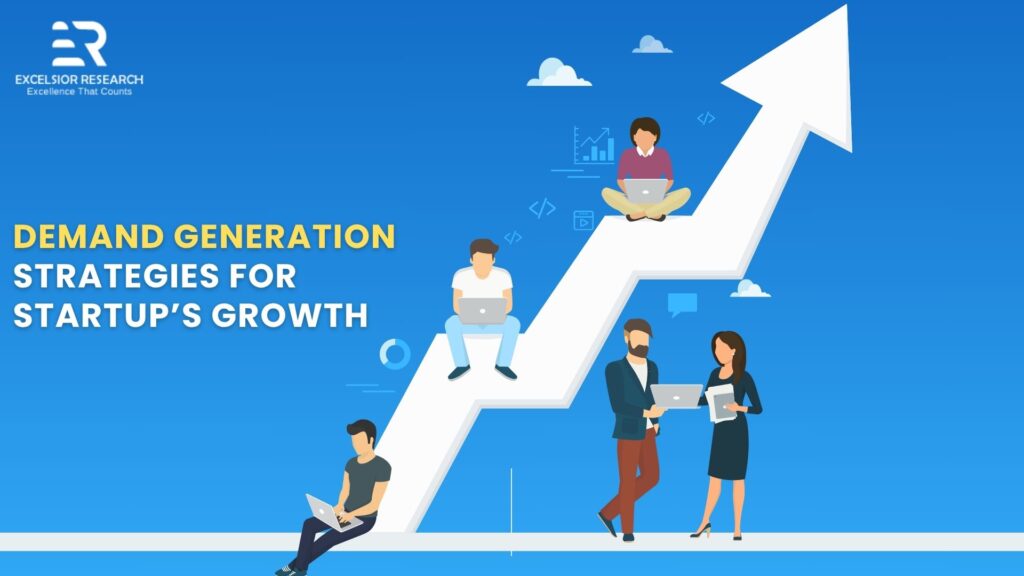One of the most important components of effective demand generation campaigns is identifying and focusing on the best B2B audience. To create leads and effectively connect with potential customers, businesses need to identify their target market and adjust their strategy accordingly. We’ll look into the essential processes involved in creating B2B demand generation campaigns, from identifying audience pain points to doing target market research. Readers will have a thorough understanding of how to create successful demand generation in the B2B landscape and optimize their approach by the end of this guide.
B2B demand generation agency
An organization that specializes in developing and putting into practice plans to create demand for a company’s goods or services within the B2B (business-to-business) sector is known as a B2B demand generation agency. These companies use a range of marketing strategies to draw in new customers, build brand awareness, and nurture leads along the sales process. The aim is to simplify the process of possibilities from first recognition to conversion by establishing a constant flow of superior leads and prospects.
Developing Individualized Strategies for Building Demand
The most important aspect of a B2B demand generation agency’s skill is its capacity to develop specific strategies that align with the different needs and preferences of its intended B2B clients. This includes carrying out a thorough market analysis, dividing the market, and producing engaging content that speaks to the needs and interests of potential customers.
1. Accurate Market Research
The accuracy of market analysis must be thoroughly studied to implement successful, specific strategies. This involves carefully examining market trends, rivalry profiles, and opportunities in certain niches.
2. Strategies for Flexible Segmentation
B2B agencies use flexible segmentation techniques to efficiently adjust demand generation. This involves dividing the target audience according to changing criteria, including engagement patterns, behavior, and preferences.
b2b lead generation
The practice of finding and appealing to new customers who are companies rather than private individuals is known as business-to-business (B2B) lead generation. This includes techniques aimed at generating interest in your good or service and eventually turning those interested companies into paying clients.
Six Guidelines for Creating Effective B2B Leads
1. Describe the perfect client for you:
Who are you trying to reach? What difficulties and needs do they have?
2. Provide useful information
Provide information that addresses their problems, such as whitepapers, ebooks, seminars, and blog entries.
3. Use a variety of channels:
Utilize a combination of offline and online media to connect with your target market.
4. Make your website more lead-capturing friendly:
Make it simple for visitors to download articles or subscribe to your email list.
5. Take care of your leads:
Develop a relationship with potential clients by continuing to offer value.
6. Monitor and assess your outcomes:
Keep an eye on your campaigns and modify your plan in response to what is effective.
b2b lead generation services
Specialized companies or businesses that help other businesses find and attract potential customers are referred to as providing B2B lead generation services. These services make use of a range of strategies and tools that generate curiosity, draw in customers, and eventually turn them into qualified leads for B2B businesses. The intention is to offer an organized and efficient method to find new business prospects.
Six Guidelines for Services That Generate B2B Leads
1. Individualized Audience Research:
To guarantee accuracy in lead generation initiatives, perform an in-depth analysis of the ideal B2B audience.
2. Implement strategies using a variety of channels,
such as social media, email campaigns, digital marketing, and platforms specific to a certain industry.
3. Content Strategy:
Create interesting, specialized content that speaks to the unique requirements and difficulties of the intended business-to-business (B2B) audience.
4. Lead Scoring and Qualification:
Use lead scoring systems to rank leads with the highest potential and make sure that resources are distributed effectively.
5. CRM Collaboration:
For efficient lead management, tracking, and individualized communication, make use of Customer Relationship Management (CRM) solutions.
6. Data Analytics:
Utilize analytics and insights derived from data to continuously improve lead-generating methods in light of performance indicators.
b2b digital agency
A business-to-business marketing agency that focuses on offering digital marketing services to other companies is known as a B2B digital agency. To assist B2B clients in achieving their marketing and commercial goals, these organizations focus on developing and executing digital strategies. Digital advertising, content marketing, search engine optimization (SEO), social media marketing, and other online strategies targeted to the particular requirements of companies aiming to target other businesses are among the services provided by B2B digital agencies.
Six Guidelines for Digital Agency Services in B2B
1. Targeted Digital Marketing:
Create and carry out campaigns with certain businesses or industries in mind.
2. Content Marketing Strategies:
Create content marketing plans that speak to B2B audiences, giving them insightful information and establishing your authority.
3. SEO Optimization:
Use SEO strategies to raise your website’s exposure online and raise your position in search results for relevant B2B keywords.
4. Social Media Engagement:
Design and monitor social media programs that promote community engagement and B2B audience engagement.
5. Data-Driven Decision Making:
Measure the success of campaigns, make informed marketing decisions, and maximize results by utilizing data analytics.
6. Account-Based Marketing (ABM):
Customize interactions and campaigns for particular businesses by utilizing account-based marketing strategies.
Add Your Heading Text Here
To achieve the greatest success of demand generation strategies, it is essential to identify the target population. This ensures that marketing efforts are customized to potential clients’ unique demands and interests.
To obtain insight into the issues faced by the B2B audience, it is necessary to do market research, customer interviews, and feedback analysis to understand the problem-solving components of the product.
To assist companies in data-driven decisions and more effectively identify and reach their B2B target audience, sales intelligence technologies offer useful data and insights.
To guide marketing strategies based on the needs and preferences of the most valuable audience groups, it is necessary to define the characteristics of the ideal B2B client while creating ICPs.
To improve visibility and draw in the proper prospects, organizations should better align their content with the search queries of their B2B audience by identifying and utilizing relevant keywords.
Don't forget to share this post
Our Recommendation






